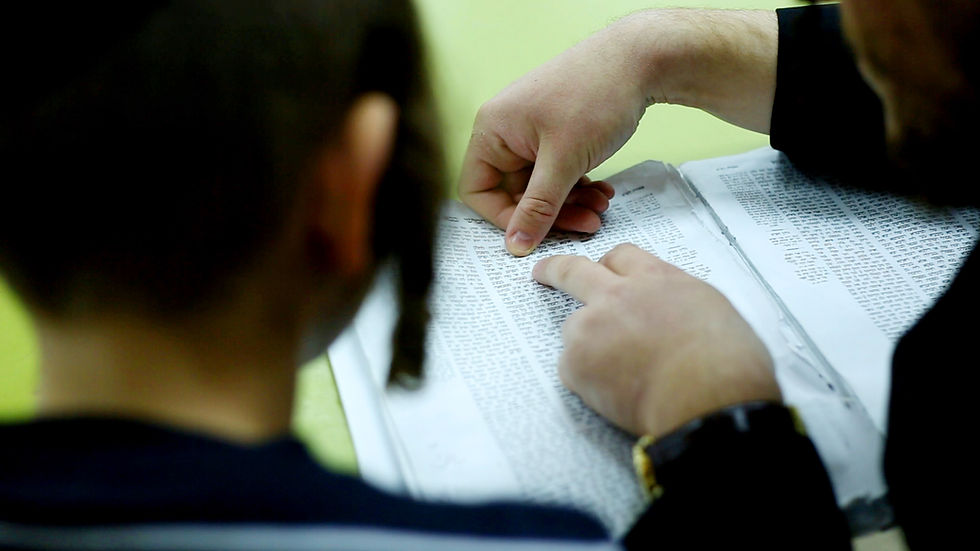World War III in My Living Room
- Pele Yoetz
- Feb 18, 2021
- 3 min read
Updated: Mar 19, 2021
Question:
Baruch Hashem, I’m blessed with a houseful of boys. They’re great friends, but they fight and tussle a lot as boys do, and often the fighting escalates. As a parent, it’s hard—and frightening—to watch my boys beat each other up. We’ve tried on many occasions to intervene, but with little success. Even when we do put a stop to one fight, another one inevitably starts up over anything and everything.
What should we do? How should parents react when watching their children physically hit each other?
Hagaon Harav Dovid Levi, shlit”a answers:
As you wrote at the start, sibling rivalry is natural and exists in every home. The problem starts when we become partners to the fighting.
As a general rule in sibling rivalry, there is a weaker child versus a stronger child or a younger child versus an older child. Many times, it is actually the younger child who starts up with the older one; and the older one, unable to restrain himself, fights back at full strength. In most cases, this is usually the difficult part for parents to watch—and it places us in an agonizing dilemma: The younger child started up, but how can we watch silently while he endures a physical beating at the hand of his older brother? We’re parents to both of them, and if we don’t intervene, the younger child will feel that we don’t care about him; but if we do intervene and blame the older one, then he’ll feel unloved and misunderstood.

The secret to resolving this dilemma is the knowledge that if we don’t intervene, the fight won’t start to begin with! In the natural course of life, a weaker child is afraid of his older brother and wouldn’t dare provoke him. So what spurs him to goad him frequently at the risk of getting hit?
His parents’ response and protection. The younger child is keenly aware that his parents will protect him and fight his battles at all costs, and this is why he is not afraid to provoke his older brother.
To neutralize this situation, our role is to simply remove ourselves from the picture.
We must clarify to our children that we do not get involved in their fighting under any circumstance. Their fights are their business, and it is up to them to settle, compromise, or surrender.
Theoretically, this may sound ideal, but still, how can we watch our younger, weaker child suffer physical abuse and remain silent?
The answer is to exercise self-control, fortified with the knowledge that the only means of stopping the fighting long-term is to steer clear of it. Even more important than that, however, is instilling awareness and appreciation in our children of the value of vitur, giving in, and the terrible middah and aveirah of nekamah.
It is crucial to emphasize that a child who gives in to another deserves praise and recognition, whereas one who physically hits another child or hurts him verbally is wrong and should feel ashamed.
By interspersing our discussions with our children with vertlach, stories, and real life examples that demonstrate genuine care, compassion and understanding of children’s struggles, we can create a positive environment in which, instead of our children coming tearfully to us and complaining that they were hurt by their friends or siblings, they’ll come and proudly tell us how they overcame their own inclinations to fight back!
Accentuating these skills and values is constructive not only for teaching kids to stop fighting, but also for teaching them how to cope well with reality and surmount challenges in life. Not always will we be in a position to protect our child from people who are stronger and more powerful than he, and therefore, we must empower him with tools to feel strong and confident no matter the circumstances. If we work to ingrain this knowledge in their minds at a young age, then the message will follow him into adolescence and adulthood.
As an added bonus, when the older child perceives the appreciation that follows every act of giving in, it will automatically cause him to make a positive shift in his own behavior.
Wishing you loads of nachas!




Comments